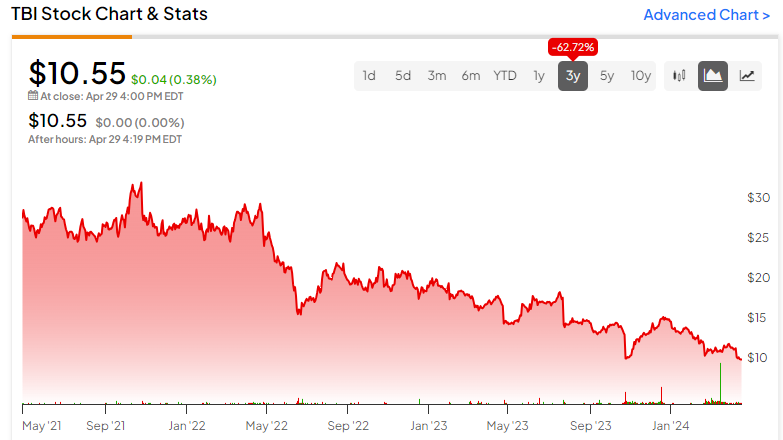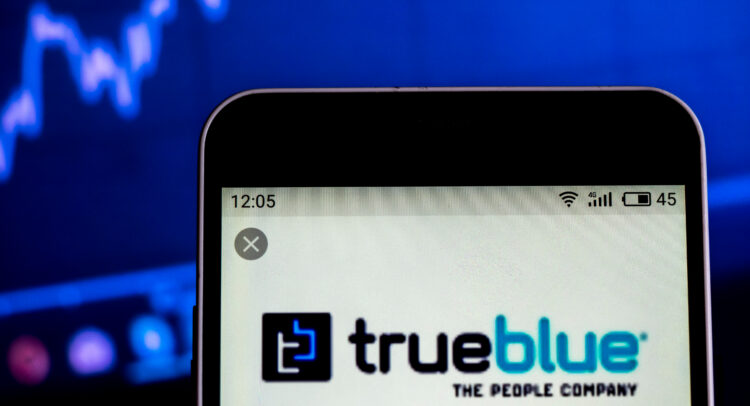Despite 54-year lows in unemployment rates, the staffing industry is wrestling with economic instability. Businesses are attempting to reduce costs by demanding more from existing teams, while being more selective when looking to fill both temporary and permanent positions. This has decreased market demand across the staffing sector, highlighting the ironic struggle within an otherwise thriving employment market. Companies like TrueBlue (NYSE:TBI) have seen lackluster growth as a result of these persistent challenges facing the staffing industry.
Elevate Your Investing Strategy:
- Take advantage of TipRanks Premium at 50% off! Unlock powerful investing tools, advanced data, and expert analyst insights to help you invest with confidence.
The company’s stock has decreased more than 60% over the past three years, and disappointing guidance from management on near-term revenue suggests that the trend may continue. Investors may want to side-step this one until demand in the staffing market improves.

Analysis of TrueBlue’s Recent Performance
TrueBlue is a player in specialized workforce solutions, providing staffing and recruitment services for businesses. In 2023, the company connected around 464,000 individuals with employment opportunities at 67,000 clients across various sectors.
The Q4 financial results for 2023 showed a notable decrease in revenue; at $492 million, it was down almost 12% compared to the same period in the preceding year. A net loss of $3 million translated to a net loss per diluted share of -$0.08.
Looking at the full-year metrics, revenue dropped 15% from $2.3 billion in 2022 to $1.9 billion in 2023. The net loss per diluted share was -$0.45 in 2023, as opposed to a net income of $2.44 in the prior year. The company reported a cash reserve of $62 million, along with $86 million in borrowing ability. TrueBlue does not have any debt on its books.
Management anticipates a Q1 revenue decline between 10-16% (which translates to $392 million-$417 million), which falls short of the consensus expectations of $425.3 million. That being said, Q1 tends to be the company’s lowest revenue quarter.
Is TBI Stock a Buy?
The stock has been trending down, losing over 30% YTD, and it continues to demonstrate negative momentum, trading below the 20-day ($11.50) and 50-day ($12.10) moving averages. The stock appears to be relatively undervalued, with a P/S ratio of 0.18x sitting below the Staffing & Employment Services industry average of 1.1x. However, investors might be reaching for a falling knife at this point.
Wall Street thinly follows the stock, though the analysts covering it have been constructive. For instance, Baird analyst Mark Marcon lowered the price target on the stock from $16 to $14 while keeping a Buy rating, citing normalizing employment as a driver of future growth.
TrueBlue is rated a Moderate Buy based on the recommendations and 12-month price targets that two Wall Street analysts issued over the past three months. The average price target for TBI stock is $14.50, which represents a 37.44% upside from current levels.

Final Thoughts on TBI
TrueBlue may be a market leader, but the negative macro trends in the staffing industry seem overwhelming. With the stock trading at a value, investors might want to keep an eye on the company and industry, looking for potential green shoots as a sign to revisit this opportunity.
















